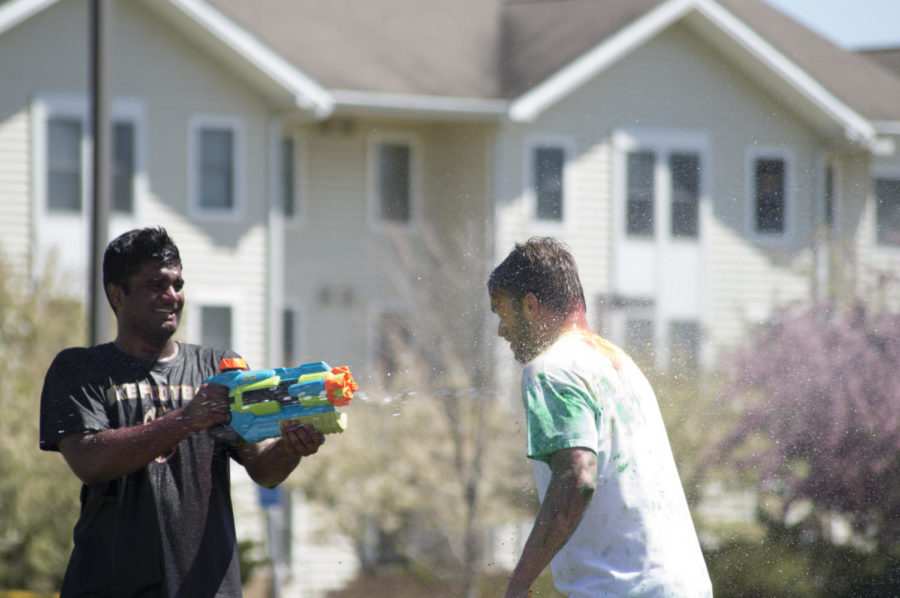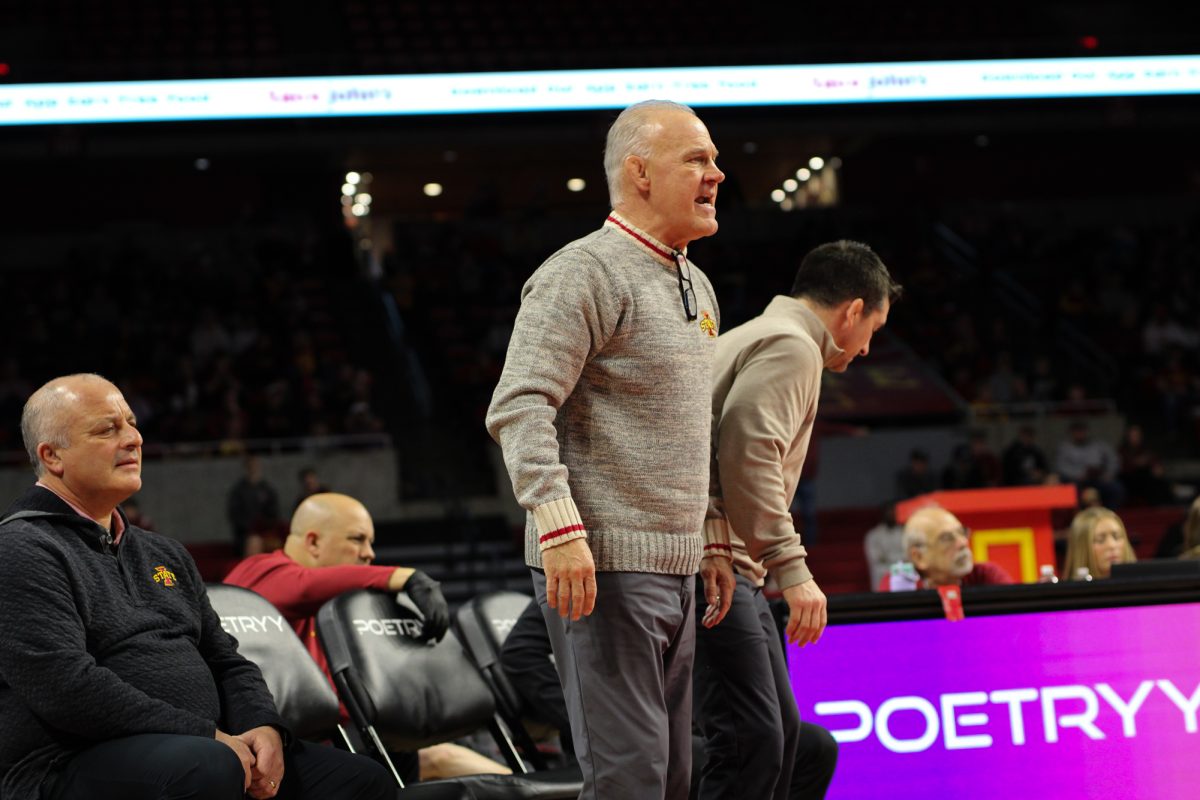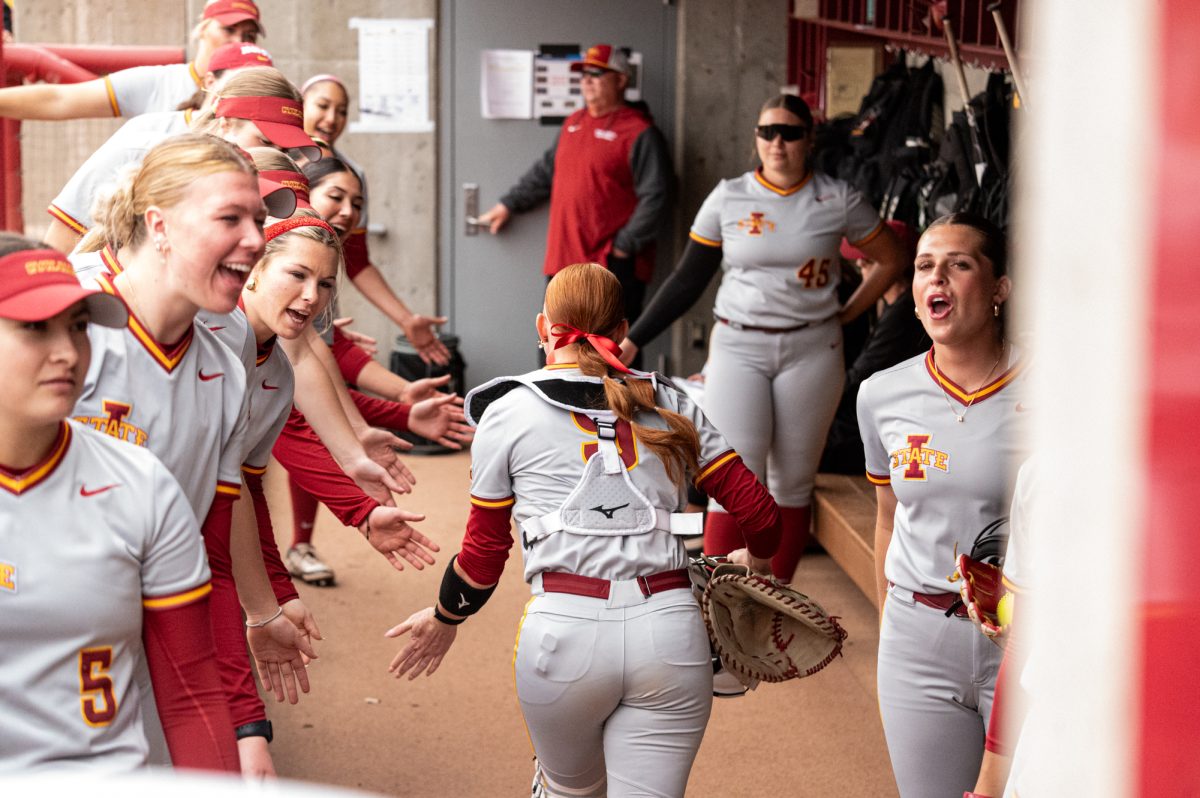Student Affairs commmittee helps event funding
Charlie Coffey/Iowa State Daily
Participants of the 2015 Holi celebration throw colored dust and spray water on one another April 26. The celebration was organized by the Indian Students’ Association.
September 8, 2015
Club and group leaders have many decisions to make regarding their organizations and events.
The usage of their funds is just one of those decisions. Gaps within the budget are frequent issues for some clubs and organizations.
The Division of Student Affairs set up a committee in February specifically to help student organizations finance events throughout the school year.
“[The Student Affairs committee] facilitates a process for events to get support,” said Martino Harmon, associate vice president for Student Affairs. “Student Affairs has always been a source for funding events.”
Harmon said student groups asked for event funding from Student Affairs before the creation of the funding committee, which was put together as an organized and official way to finance events.
Among the groups to take advantage of the service is the Cyclone Swing Society, which needed funding for its “Live Band Swing Dance.”
“The application probably took 45 minutes to fill out,” said Nathaniel Collins, treasurer of the Cyclone Swing Society and sophomore in supply chain management. “They got back to us in only about a month and a half.”
For an event to receive funding, a correctly filled out application must be sent to Student Affairs.
A committee of 31 students, faculty and staff look over applications and give their input to three committee co-chairs.
“All input goes to [Tom] Hill for final approval,” Harmon said.
Hill is the senior vice president for Student Affairs and decides the funding budget for Student Affairs. The committee and co-chairs help Hill decide where the money goes.
Harmon said several factors go into Hill’s and the committee’s judgment.
These include how well the application is filled out, how the group’s budget spreadsheet looks and how much money the group has already raised.
The people who look over the applications must decide if the event in question deserves funding, and if so, what amount should be given.
“I would recommend being prepared ahead of time and to document your events well,” Collins said as advice to group leaders looking to fill out a funding application.
Keeping two copies of budget documents and double checking information are also suggestions.
“It helps when an organization can show that they’ll help fund the event,” Harmon said.
Harmon said trust and commitment are qualities the committee looks for when considering event funding.
Harmon said some of the funding budget “may come from outside sources,” though he could not confirm the exact people or entities the money comes from.
Collins said the process of application and submission was efficient, but he was unsure about one part of the process.
“The only part that gave me a little hang-up, was we received the funding money after the event took place,” Collins said.
The group had to keep track of receipts and watch its budget closely. It has since received the amount agreed upon by Student Affairs.
“They want to make sure the money’s going to the right place,” Collins said.
Harmon said the point of the funding process and service by Student Affairs is education.
He wants students to learn about the application and funding process because it may pertain to their professional lives.







